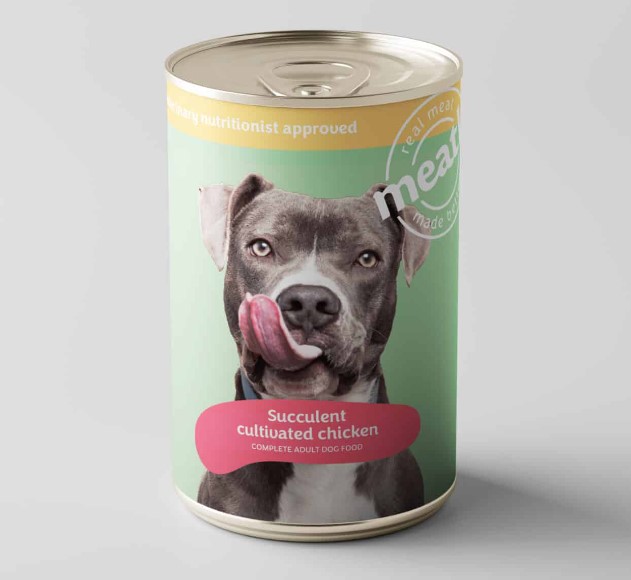In the last 24 hours, UK pet food brand Meatly became a world first in securing authorisation to sell cultivated (lab-grown) meat in a pet food product.
The question is, will consumers such as yourself be willing to feed your dog lab-grown meat?
There’s some marketing at play already, with the term “lab-grown” pushed aside in favour of the more appealing term “cultivated”, but it’s interesting to consider whether this is a significant leap forward for the entire pet food industry, or just another aspect of pet food we will become wary of.
Let’s take a look at what may be considered a groundbreaking change in how we view food, and pet food:
What is cultivated meat?
So, what exactly is cultivated meat, and why is this approval such a big deal?
Cultivated meat, also known as lab-grown or cell-based meat, is produced by cultivating animal cells in a controlled environment.
This method of “meat” production eliminates the need to raise and slaughter animals, which to me is an undeniable benefit.
Cultivated meat would therefore offer a potentially more ethical and sustainable method of food production.
The concept of cultivated meat was first introduced in the early 2000s, and the first lab-grown burger was showcased in 2013.
Since then, the industry has seen rapid advancements, and in terms of pet food it seems Meatly are leading the way.
How Meatly may change the future of cultivated meat pet food
Meatly plans to launch the first samples of its commercially available pet food this year. Following this initial launch, the company’s primary focus will shift to reducing costs and scaling production to reach industrial volumes within the next three years.
The regulatory approval is just one of several significant milestones for Meatly. The company has secured £3.5 million (approx. AUD $6.7 million) in investment, and achieved regulatory approval in under two years of operation.
These achievements have placed Meatly at the forefront of the cultivated meat for pet food industry, demonstrating that there is a low-capital and fast route to market for cultivated meat pet food products.
A word from Meatly’s CEO Owen Ensor and Founder of Agronomics Jim Mellon
Owen Ensor, Meatly’s CEO, expressed his excitement about the approval:
“Today marks a significant milestone for the European cultivated meat industry. I’m incredibly proud that Meatly is the first company in Europe to get the green light to sell cultivated meat. We are proving that there is a safe and low-capital way to rapidly bring cultivated meat to market.”
Ensor added, “We’re delighted to have worked proactively alongside the UK’s regulators to showcase that Meatly chicken is safe and healthy for pets. Pet parents are crying out for a better way to feed their cats and dogs meat – we’re so excited to meet this demand. We can now continue our mission to give consumers an easy choice – ensuring we can feed our beloved pets the real meat they need and crave, in a way that is kinder to our planet and other animals.”
Jim Mellon, Founder of Agronomics and an investor in Meatly, also highlighted the significance of this approval:
“Meatly’s regulatory approval is a landmark event for the industry. Through its technological innovation and close work with governing authorities, Meatly is helping prove that we can succeed in commercialising cultivated products for pets across the UK. Our pets consume huge amounts of meat every day, and so this development can play a crucial part in reducing the emissions, resource consumption, and animal suffering caused by traditional meat production.”
As cultivated meat moves from science fiction to your pet’s food bowl, the question remains – Would you feed lab-grown meat to your pet?
Will this innovation offer us a healthier, more sustainable future for our pets and the planet?



Leave a Reply